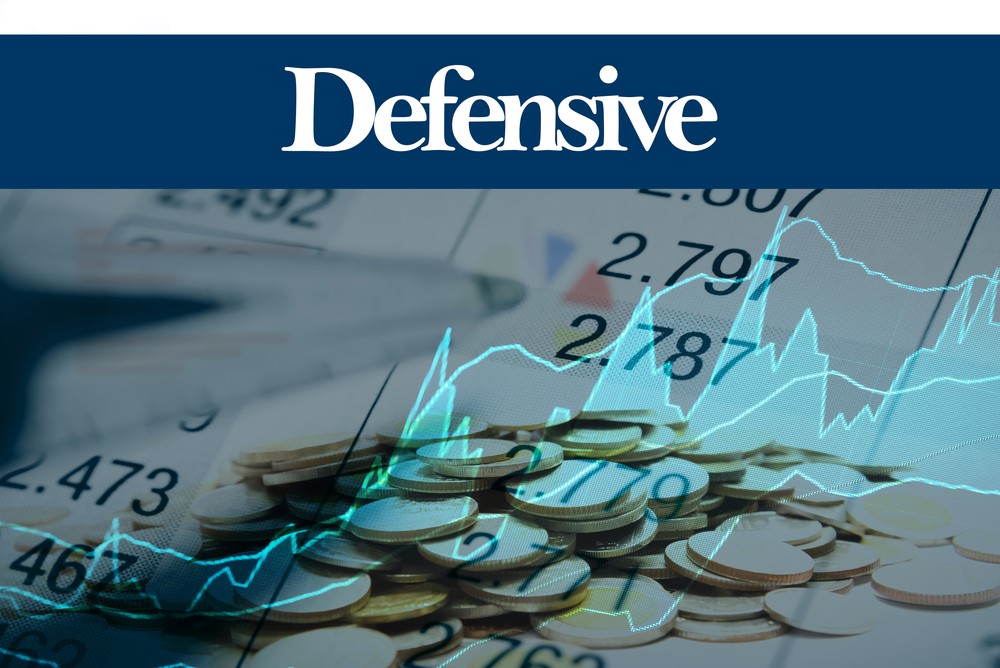In the realm of investment, where uncertainty and market fluctuations are the norms, defensive stocks emerge as a beacon of stability for cautious investors. There is no lack of questions about defensive stocks, such as ‘What is a defensive stock?’
These stocks, often likened to the ‘shock absorbers’ of an investment portfolio, are characterized by their resilience during economic downturns and their steady performance irrespective of market conditions.
This article delves into the concept of defensive stocks, exploring their advantages and disadvantages and thereby presenting a comprehensive understanding of their role in investment strategies.
Definition
Defensive stocks represent shares in companies whose performance and earnings are relatively immune to the vagaries of the economic cycle. These companies typically operate in sectors essential to everyday life, such as utilities, healthcare, and consumer staples (including food, beverages, and household items).
The defining characteristic of these stocks is their consistency in generating steady earnings and dividends, even during economic downturns.
companies
We also need to take a closer look at defensive stock companies.
Defensive stock companies operate in industries that provide essential goods and services, ensuring steady demand regardless of economic conditions. These typically include utilities, healthcare, consumer staples (like food, beverages, and household necessities), and some pharmaceutical companies.
Examples of such companies might be Procter & Gamble, known for a wide range of consumer products, Johnson & Johnson in healthcare and pharmaceuticals, and utility companies like Southern Company. These firms are characterized by their ability to maintain consistent revenue and dividends, making them attractive to investors seeking stability and lower risk in their investment portfolios.
Advantages and disadvantages

The primary advantage of defensive stocks is their ability to withstand economic recessions. When the economy slows down, consumers cut back on discretionary spending but continue to purchase essential goods and services. This inherent stability makes defensive stocks a safe haven during market turbulence.
Consistent dividends: Companies that are considered defensive often have a long history of stable and consistent dividend payments. For investors, particularly those seeking regular income (like retirees), these dividends are a significant attraction.
Reduced volatility: Defensive stocks usually experience lower price volatility than other sectors. This lower risk profile is particularly appealing to risk-averse investors who prioritize capital preservation over high returns.
Counter-cyclical balance: In a diversified portfolio, defensive stocks can provide a counterbalance against more cyclical or speculative investments. During economic downturns, when cyclical stocks may underperform, defensive stocks can help stabilize a portfolio’s performance.
What about challenges?
One of the main drawbacks of defensive stocks is their limited growth potential. Since these companies operate in mature, stable industries, the opportunities for significant growth are often less compared to companies in more dynamic sectors like technology or finance.
Inflation risk: These stocks can be particularly vulnerable to inflation. Fixed-income investments like dividends lose purchasing power in inflationary environments, making these stocks less attractive to investors seeking real returns over inflation.
Opportunity cost: By focusing on stability and dividend income, investors in defensive stocks might miss out on the higher growth potential offered by other sectors, particularly in a bull market. This opportunity cost can be significant, especially for long-term investors.
Overvaluation risk: Because of their perceived safety, defensive stocks can sometimes become overvalued, especially in times of market stress when investors flock to safety. This overvaluation can reduce future returns and increase downside risk if the market sentiment changes.
Strategic considerations
Investors incorporating defensive stocks into their portfolios should consider their overall investment goals and risk tolerance. While these stocks offer stability and income, they should be balanced with investments that provide growth potential to optimize long-term returns.
Additionally, investors should be vigilant about valuation metrics to avoid overpaying for safety, especially in a market where defensive stocks are in high demand.
Defensive stocks vs cyclical stocks

Investing in the stock market involves understanding various stock categories, each behaving differently across economic cycles. Two prominent categories are defensive and cyclical stocks, each with distinct characteristics and roles in a diversified portfolio. This article provides a comparative analysis of these two types of stocks, offering investors insights into their investment strategies.
Defensive stocks, as previously discussed, are shares of companies that provide essential goods and services, such as utilities, healthcare, and consumer staples. These stocks are known for their resilience during economic downturns.
Their performance is largely unaffected by the state of the economy because the demand for essential products and services remains constant, regardless of economic conditions. This consistency translates into stable revenues and earnings for the companies, making their stocks less volatile and providing a safety net for investors during market downturns.
In contrast, cyclical stocks represent companies whose performance is heavily tied to the economic cycle. These include sectors like consumer discretionary, automotive, manufacturing, and travel. In a booming economy, these companies often report increased profits as consumers and businesses have more disposable income to spend.
However, these sectors are hit hard during economic downturns as consumers cut back on non-essential spending. Cyclical stocks are, therefore, more volatile, experiencing higher highs during economic expansions and lower lows during recessions.
Comparative analysis: stability vs. growth potential

Volatility and risk: Defensive stocks offer lower volatility and risk, appealing to conservative investors. Cyclical stocks, with their higher volatility, attract investors willing to accept more risk for the potential of higher returns during economic upswings.
Performance in economic cycles: Defensive stocks typically outperform cyclical stocks during economic downturns and recessions. Conversely, in a recovering or booming economy, cyclical stocks often outperform defensive stocks, as consumer spending and business investments increase.
Dividend yields: Defensive stocks generally provide consistent and higher dividend yields, making them attractive to income-focused investors. Cyclical stocks, while they may offer dividends, often have lower and less consistent dividend yields due to fluctuating earnings.
Growth prospects: The growth potential of cyclical stocks is generally higher, given their sensitivity to economic recoveries. Investors may see significant capital appreciation in these stocks during economic upturns.
On the other hand, defensive stocks, while stable, offer limited growth potential due to their operations in mature, saturated markets.
Investment strategy alignment: The choice between defensive and cyclical stocks largely depends on an investor’s financial goals, investment horizon, and risk tolerance. A balanced portfolio often includes a mix of both, allowing investors to benefit from the growth potential of cyclical stocks while using defensive stocks to provide stability and mitigate overall portfolio risk.
Conclusion
Defensive stocks play a crucial role in the construction of a well-diversified investment portfolio, particularly for those seeking stability and income. Their resilience during economic downturns and consistent dividend payments make them an attractive option for risk-averse investors.
However, their limited growth potential and susceptibility to inflation and overvaluation present challenges that must be carefully managed.
By understanding both the advantages and disadvantages of defensive stocks, investors can make more informed decisions, striking a balance between stability and growth, and optimizing their portfolios to achieve their long-term financial goals.









COMMENTS